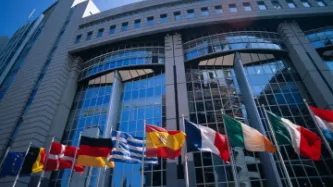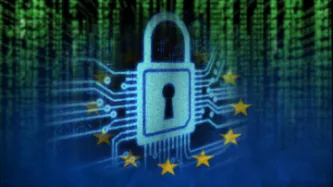Search
Content type: News & Analysis
Sometimes it takes an unexpected stranger to remind you what you have, and what you are at risk of losing. Roman Zakharov, a Russian publisher who challenged Russia’s surveillance legislation, is that stranger for many Brits and Europeans. The Grand Chamber of the European Court of Human Rights judgement on Friday 4 December 2015 was remarkable, not because it tore up the rule book on the jurisprudence surrounding state surveillance in the Council of Europe, but because it followed…
Content type: Press release
28 October 2015
Leading privacy and consumer organizations meeting in Amsterdam this week called on data protection officials around the world to support a meaningful legal framework that would protect the fundamental rights of both citizens and consumers in the online era.
In a statement issued today at the International Data Protection and Privacy Conference, the organizations criticized a just-released “Bridges” report that primarily recommended a continuation of industry self-regulation…
Content type: News & Analysis
The Coalition Against Unlawful Surveillance Exports (CAUSE) has today released a new policy paper calling on the EU to take the opportunity to update its Dual Use Regulation to ensure that surveillance technologies are not exported from Europe and used for human rights violations.
The proposals have been developed by the international secretariat of CAUSE, a coalition of NGOs consisting of Access, Amnesty International, Digitale Gesellschaft, Human Rights Watch, the…
Content type: News & Analysis
Privacy laws around the world are under threat by ambitious governments and voracious industry. Sixty-six privacy, digital rights and consumer rights organisations from around the world have joined forces to push back against attempts to weaken European privacy legislation. The coalition today wrote to the President of the European Commission (the civil service of the European Union) to demand that high levels of privacy protections must be respected in Europe's ongoing revision of its data…
Content type: Press release
The UN's top human rights body, the Human Rights Council, today has passed a landmark resolution endorsing the appointment of an independent expert on the right to privacy. For the first time in the UN's history, an individual will be appointed to monitor, investigate and report on privacy issues and alleged violations in States across the world.
The resolution, which appoints a Special Rapporteur on the right to privacy for an initial period of three years, was spearheaded by Germany and…
Content type: Long Read
Modern day government surveillance is based on the simple concept of “more is more” and “bigger is better”. More emails, more text messages, more phone calls, more screenshots from Skype calls. The bigger the haystack, the more needles we can find.
Thanks to Edward Snowden, we know that this fundamental idea drives intelligence agencies like the NSA and GCHQ - the desire to collect it all, to generate gigantic haystacks through which to trawl. In the almost two years since the first of Snowden…
Content type: News & Analysis
Intelligence sharing agreements can be open and transparent. In fact, the Five Eyes have already disclosed information sharing agreements that relate to key international law enforcement and national security measures.
They’re called mutual legal assistance treaties, or MLATs, and they’ve existed between the Five Eyes, excluding New Zealand, for decades. MLATs define the scope of cooperation between States in criminal investigations: States share sensitive information in criminal…




